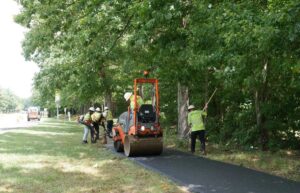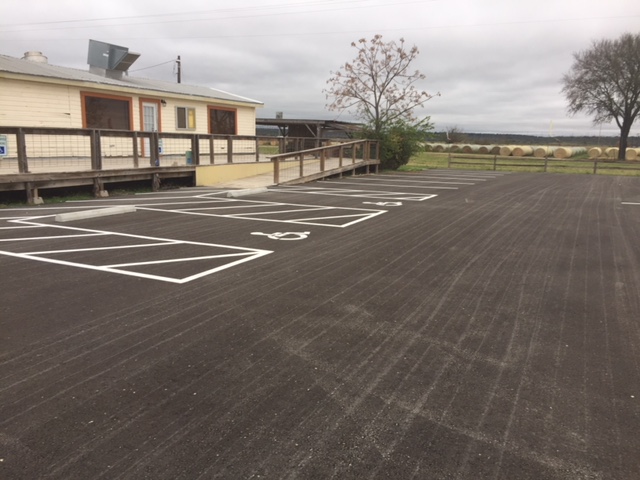What Is the Recommended Thickness for Asphalt Paving?
Full-depth asphalt pavement is constructed by installing the appropriate layers of asphalt paving for all courses above the soil subgrade. When considering full-depth asphalt, customers frequently wonder how thick the asphalt pavement should be. Unfortunately, there is no easy answer to that question. There are several variables that asphalt paving contractors must evaluate before determining the appropriate thickness.
Intended Use of the Pavement
The weight of the vehicles that will be using the pavement, the speed at which they will be traveling and the number of vehicles using the pavement on an average day are all factors that must be considered. For example, a residential driveway that will be driven on at low speed by three or four passenger cars a day does not need to be as thick as the pavement on an interstate highway that bears hundreds of tractor-trailers and thousands of cars every day. Thus, a compacted asphalt thickness of 2.5 to 3 inches may be more than sufficient for a residential driveway, but a busy mixed-use lot may need a compacted asphalt thickness of 4 inches or more.
Type of Soil
The soil needs to provide a strong, stable foundation for the finished pavement. To achieve this, contractors grade and compact the soil to form the subgrade. If the soil is rocky, sandy or gravelly, it should compact properly and provide good drainage. However, if the soil is loam, clay or another soft soil, it will be more difficult to achieve proper compaction. In particular, clay soils do not provide great drainage, and they tend to expand and contract in response to their moisture content. If proper compaction cannot be achieved, it may be necessary to remove and replace some of the soil or use an aggregate subbase. The depth to which the soil can be compacted or the use of an aggregate subbase can affect the depth of the asphalt needed to provide satisfactory results.
Type of Asphalt Mix

Asphalt mixes are available in different types, including open-graded and traditional asphalt pavement. The size of the aggregates can affect the thickness of the asphalt pavement. For example, the standard rule is that the thickness of each layer needs to be at least three times greater than the nominal maximum size of the aggregate. However, the maximum size of the aggregate in open-graded mixes can be up to 80 percent of the layer’s thickness. Furthermore, it is possible to use different types of mixes to build the pavement. For example, the lower layer might be a traditional asphalt mix, but the surface layer might use a thinner layer of a mix with smaller aggregates to provide additional visual appeal without sacrificing strength.
We understand that there is more than one way to install a durable, attractive asphalt pavement. Alpha Paving is a full-service paving company in Austin with impeccable references, highly skilled employees and a dedication to superior customer service. We offer an extensive range of asphalt services, including asphalt paving, repairs, asphalt sealing and milling, and we also offer parking lot striping, road construction, concrete work, pavement markings and concrete repairs. Our customers include many high-profile retailers, municipalities, educational facilities, airports, health care facilities, hotels, shopping malls, religious institutions, restaurants, industrial facilities, apartment complexes and office parks. If you are looking for paving contractors in Austin, Tx and need exceptional work at affordable rates, you can request a free quote by completing the online form or calling (512) 677-9001.






